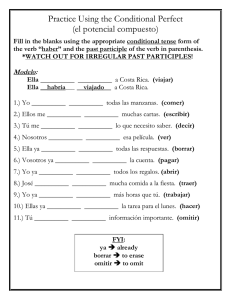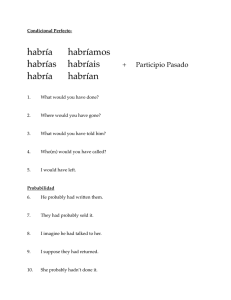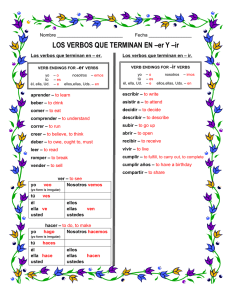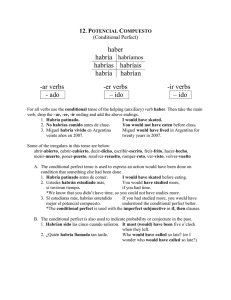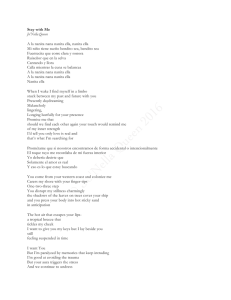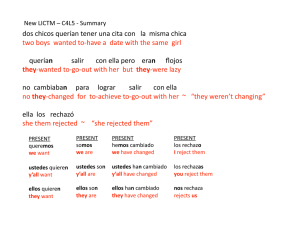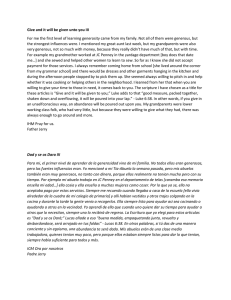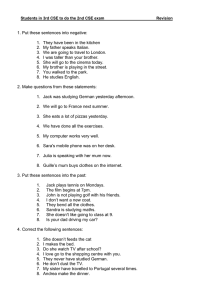Ch 8-Ch9 Verb tenses explained Handout Page
Anuncio
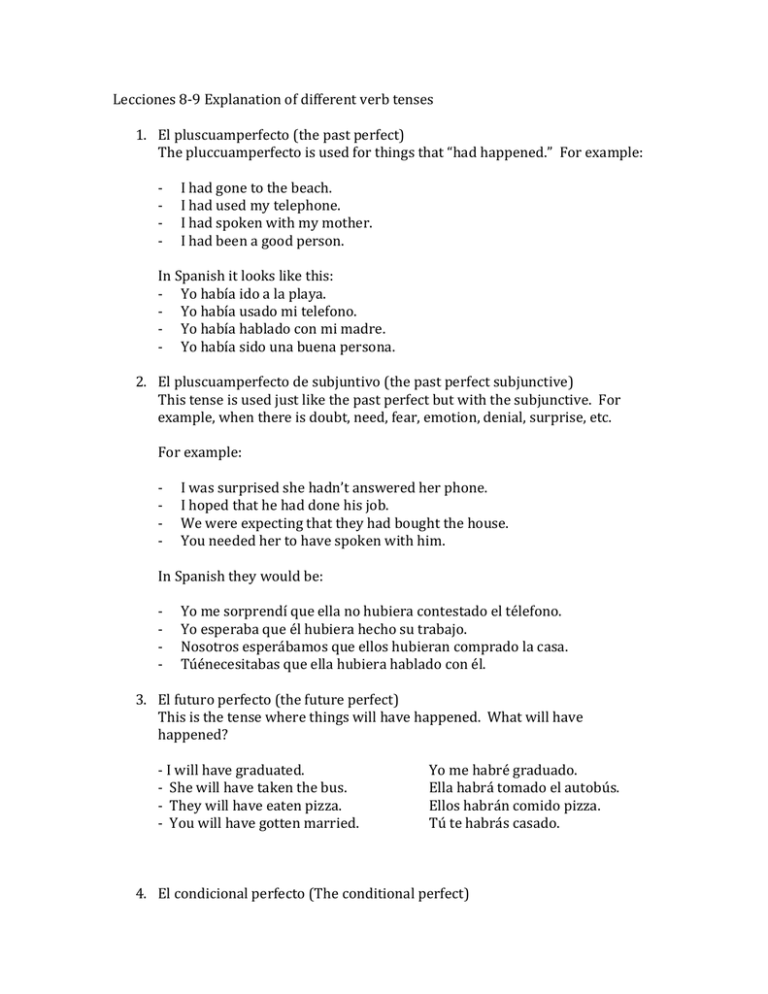
Lecciones 8-­‐9 Explanation of different verb tenses 1. El pluscuamperfecto (the past perfect) The pluccuamperfecto is used for things that “had happened.” For example: -­‐ I had gone to the beach. -­‐ I had used my telephone. -­‐ I had spoken with my mother. -­‐ I had been a good person. In Spanish it looks like this: -­‐ Yo había ido a la playa. -­‐ Yo había usado mi telefono. -­‐ Yo había hablado con mi madre. -­‐ Yo había sido una buena persona. 2. El pluscuamperfecto de subjuntivo (the past perfect subjunctive) This tense is used just like the past perfect but with the subjunctive. For example, when there is doubt, need, fear, emotion, denial, surprise, etc. For example: -­‐ I was surprised she hadn’t answered her phone. -­‐ I hoped that he had done his job. -­‐ We were expecting that they had bought the house. -­‐ You needed her to have spoken with him. In Spanish they would be: -­‐ Yo me sorprendí que ella no hubiera contestado el télefono. -­‐ Yo esperaba que él hubiera hecho su trabajo. -­‐ Nosotros esperábamos que ellos hubieran comprado la casa. -­‐ Túénecesitabas que ella hubiera hablado con él. 3. El futuro perfecto (the future perfect) This is the tense where things will have happened. What will have happened? -­‐ I will have graduated. Yo me habré graduado. -­‐ She will have taken the bus. Ella habrá tomado el autobús. -­‐ They will have eaten pizza. Ellos habrán comido pizza. -­‐ You will have gotten married. Tú te habrás casado. 4. El condicional perfecto (The conditional perfect) This tense describes things that “Would have happened” but did not. For example. I would have gone to the game. (but I didn’t) Yo habría ido al partido. I would have eaten pizza. (but I didn’t) Yo habría comido pizza. They would have gone too. Ellos habrían ido también. She would have said that. Ella habría dicho eso. 5. “Si” clauses Si without an accent means “if.” We’ve seen “si” many times in the past. The simple forms are: If I learn Spanish I can get a better job. If I study, I will get a better grade. If my mom comes home I won’t be alone. “Si” is also used for hypothetical statements about the improbable Such as: If I were an athlete, I would play... If I had a million dollars, I would buy... If they lived close to me, they would have... If we went to Disneyland, we would see... Note that in this case, the conditional tense will always follow and the initial verb is always in the past subjunctive. Here are the same sentences in Spanish... Si yo fuera atleta, yo jugaría... Si yo tuvira un millón de dólares, yo compraría... Si ellos vivieran cerca, ellos tendrían... Si nosotros fueramos a Disneyland, nosotrs veríamos... One more important use of “si” is hypothetical statements about the past. For example, what would have happened if another event had occurred. For example: If I had gone to OCC instead of GWC, I would have studied more. Si yo hubiera ido a OCC en vez de GWC, yo habría estudidado más. If She had gone to TX, she would have met George B. Si ella hubiera ido a TX, ella habría conociod a GB. If we had painted the house white, we have sold it sooner. Si hubiéramos pintado la casa blanca, la habríamos vendido más pronto. Luckily, on the exam, most of these are multiple choice. Study them. Know when and how to use them. Most importantly, use them in conversation and you will remember them.
